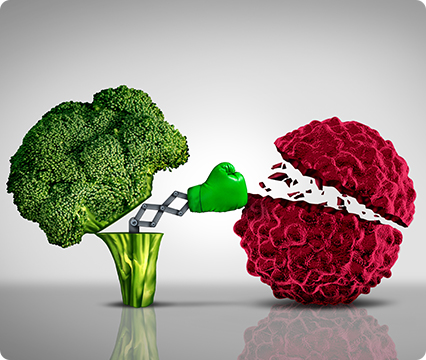Anticancer Effects of Nutraceuticals in the Mediterranean Diet: An Epigenetic Diet Model
Current evidence points to a relationship between dietary intake and the onset and course of several cancers, including colon, prostate, and breast cancer, essentially labeling these aforementioned cancers as diet-associated. The Mediterranean diet (MD) leads to a reduction in cardiovascular and metabolic diseases, as well as several types of cancer, due to the presence of a myriad of bioactive nutrients that protect against morbidities. These protective properties have been attributed to beneficial epigenetic modulation (i.e., the ability to modify whether specific genes are activated or inactivated), which could be utilized in tailoring an ‘epigenetic diet’, targeting health-promoting or disease-prevention objectives. Epigenetic modification is mostly influenced by nutrition and lifestyle changes, and epigenetic therapy is emerging as a novel avenue for nutraceutical development that can promote toxicity-free cancer prevention therapeutics. Present-day developments in the understanding of nutrigenomic, nutrigenetic, and nutraceutical mechanisms helped identify dietary ‘superfoods’ that positively influence gene expression. In this review by Divella et al. (2020), the authors discuss the role MD nutraceuticals play in cancer onset and prevention. [NPID: Mediterranean diet, cancer, epigenetic, nutraceuticals, nutrigenomics, review]
Year: 2020

 Navigation
Navigation






